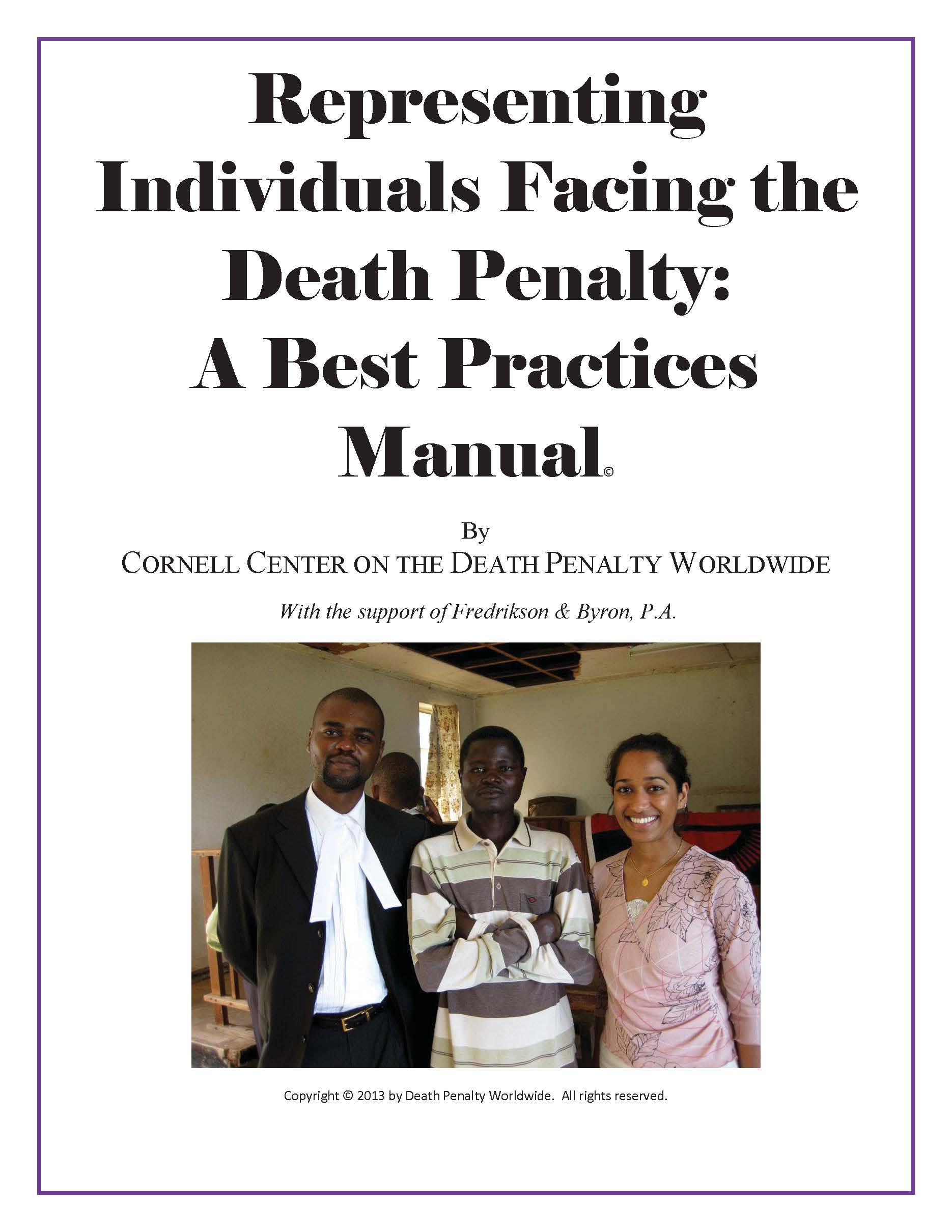Providing Help to Capital Defense Lawyers Around the World
Today in Madrid, Death Penalty Worldwide released the first-ever international manual of best practices for capital defense lawyers. Lawyers from Pakistan, China, Taiwan, Nigeria, Uganda, Cameroon, Guinea, Belgium, France, Portugal and the United States contributed to the manual, which draws from international human rights law as well as the practical experience of defense attorneys around the world. It is available on DPW’s website in both English and French at https://deathpenaltyworldwide.org/publication/representing-individuals-facing-the-death-penalty-a-best-practices-manual and https://deathpenaltyworldwide.org/publication/guide-de-bonnes-pratiques-pour-les-avocats-defendant-des-condamnes-a-mort/.
Lawyers in the global south– particularly in Africa, Asia, and the Middle East—have little recourse to training materials to guide them in defending a capital case. Defense attorneys are almost universally underfunded, and most have never attended a single training session on how to handle the representation of a person who is facing the death penalty. The new manual is a step-by-step guide designed to assist a legal representative through all stages of a capital case, from the moment of an individual’s arrest to their final clemency application. Among other things, the manual provides practical guidance regarding pretrial litigation, investigation of mitigating evidence, trial strategy, working with the media, appeals, and petitions to international human rights bodies.
At the launch of the manual, lawyers from Pakistan and China discussed the challenges they face in defending individuals facing the death penalty. Sarah Belal, the director of Justice Project Pakistan, described how she has struggled to educate lawyers in her own country about the importance of investigation in capital cases. “Many lawyers in Pakistan have never attended a training session in their entire professional careers. If lawyers begin to implement the practices described in this manual, countless prisoners will be saved from execution.”
The manual has already been translated into French, and will be translated into Chinese and Arabic by the end of 2013. The Minneapolis-based law firm of Fredrikson and Byron provided critical support in the production of the manual, along with an international team of lawyers, academics, and students associated with Northwestern University’s Center for International Human Rights.
